5 Key Moments From O.J. Simpson’s Murder Trial: From ‘The Glove’ to Denise Brown’s Testimony
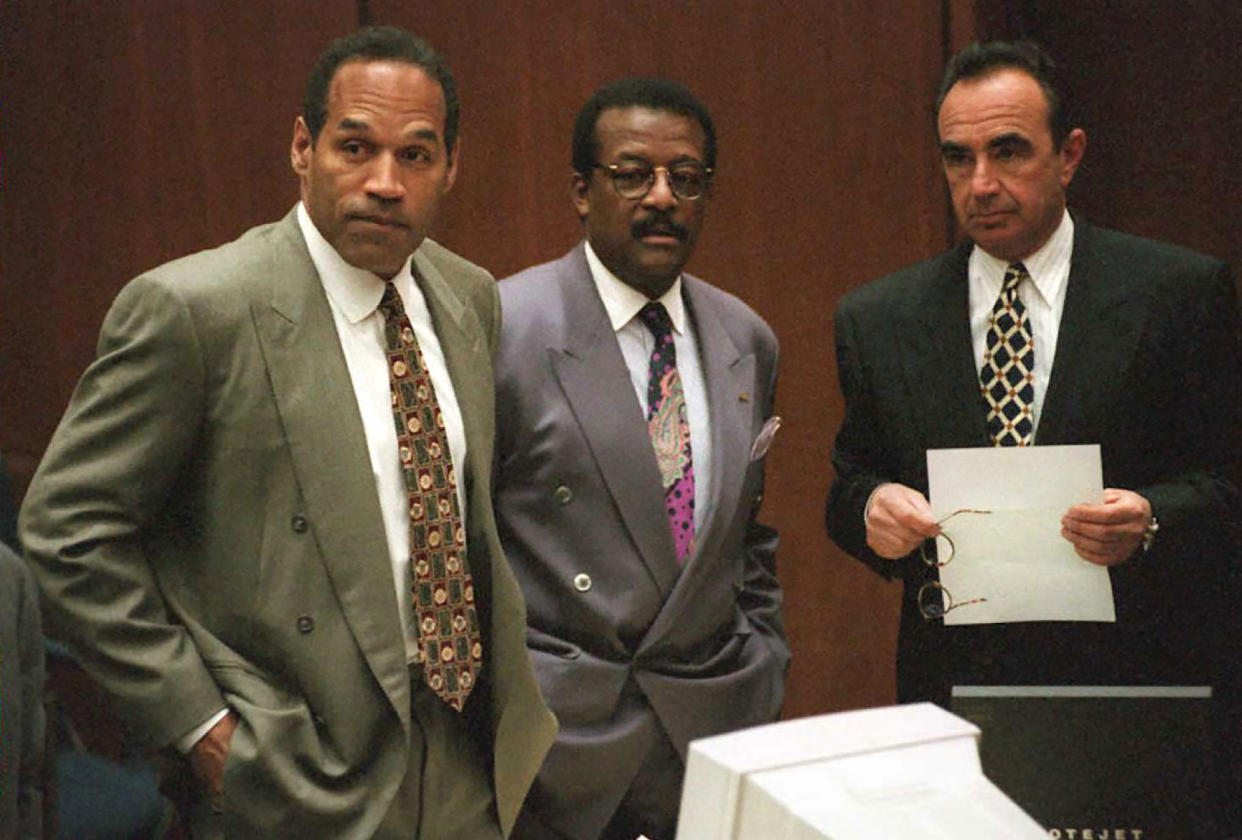
It was the trial that captivated a nation.
After O.J. Simpson — who died of prostate cancer on Wednesday, April 10 — was arrested and charged with the murders of his ex-wife Nicole Brown and her friend Ronald Goldman in June 1994, Simpson’s subsequent trial played out on camera for intense public consumption.
Often called “The Trial of the Century,” the nearly 11-month affair captivated audiences watching at home, ultimately ending in a still-controversial verdict on October 3, 1995.
Simpson, a former athlete-turned-actor, was represented by an all-star legal team that included Johnnie Cochran, Robert Shapiro, Alan Dershowitz and Robert Kardashian.
O.J. Simpson Through The Years: His Life and Controversies
On the other side of the courtroom, the state was represented by Marcia Clark, Christopher Darden and William Hodgman.
The notorious trial became one of the most scandalous, unbelievable and infamous in modern American legal history. For the five key moments that defined the proceedings, keep reading:
The Testimony of Denise Brown
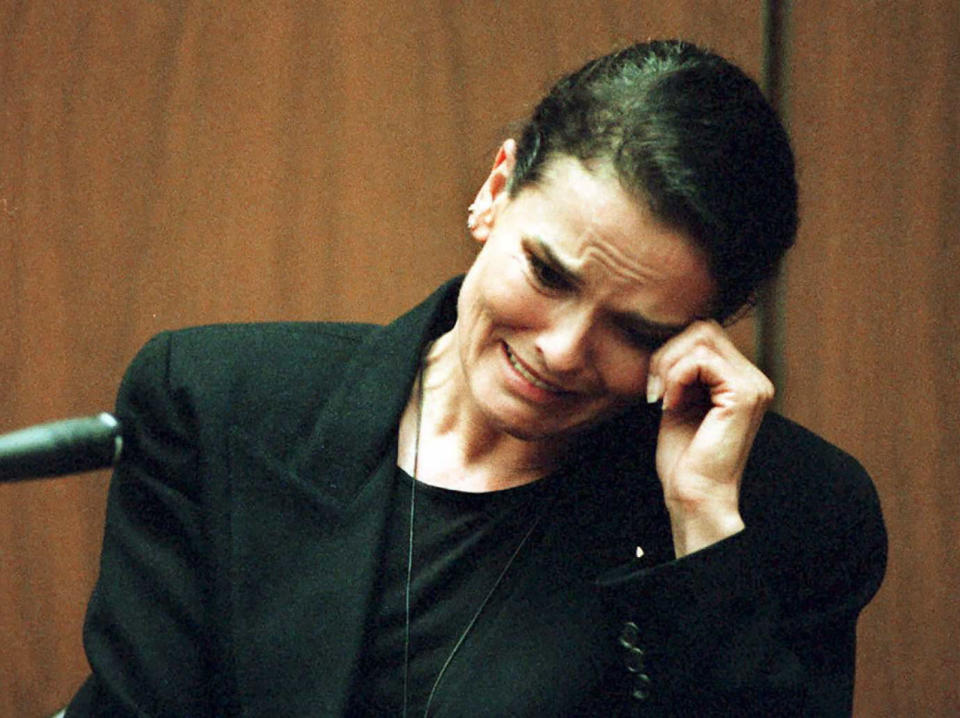
Denise, the sister of Nicole, took the stand for two days of testimony in February 1995.
During her emotionally charged courtroom appearance, Denise recalled years of abuse her sister allegedly suffered at the hands of Simpson, which she said included Simpson throwing Nicole up against a wall and tossing her out of their house in the 1980s.
Denise also recalled Simpson calling Nicole “a fat pig” when she was pregnant and grabbing Nicole’s crotch in full public view during a night out in 1989 while proudly boasting, “This belongs to me.”
She was visibly upset through most of her testimony, often crying. Her recountings were meant to paint a nasty picture of her sister’s marriage to Simpson, which came to an end in 1992 roughly two years before her death.
Upon cross examination, Denise was grilled by defense attorney Shapiro about having a drinking problem, which Denise acknowledged.
In effect, Simpson’s defense team attempted to use Denise’s sobriety issues to undermine the validity of her testimony, which some critics saw as a harsh tactic.
The Mark Fuhrman Debacle
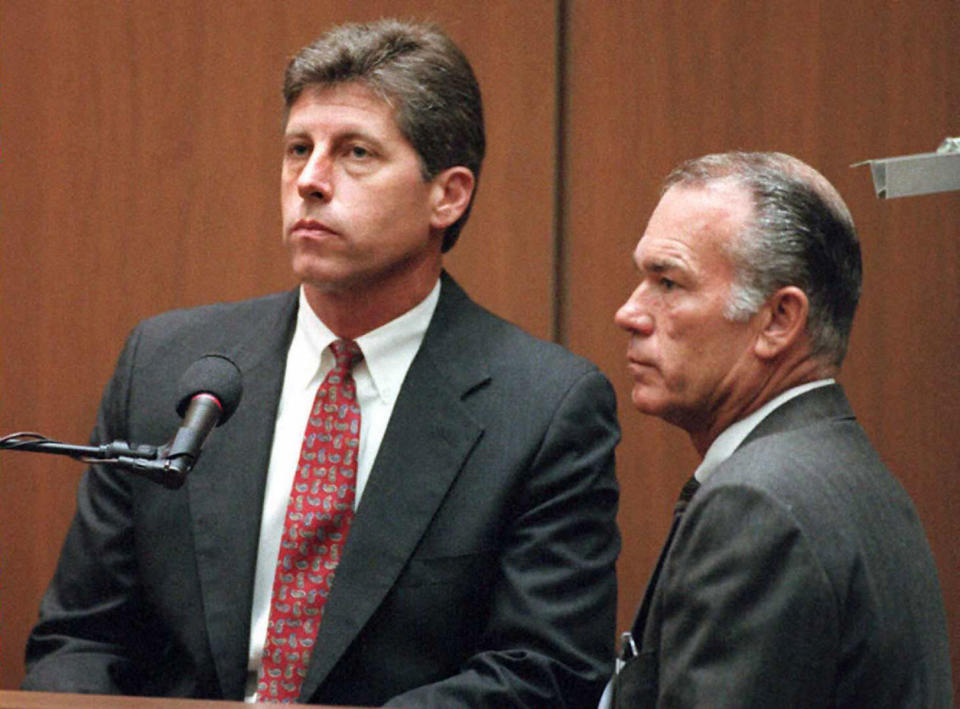
Former LAPD detective Fuhrman took the stand in March 1995 for what would become a huge turning point in the trial.
Fuhrman was responsible for discovering major evidence at the crime scene, including the infamous leather glove, which Simpson’s defense team accused Fuhrman of planting himself.
What the Kardashian Family Has Said About O.J. Simpson Over the Years
Perhaps the most stunning moment of the entire trial, however, came when defense attorneys presented audio clips of Fuhrman repeatedly using racist language in his past, something Fuhrman had previously denied on the stand. Thus, the defense claimed Fuhrman was not a credible witness and had committed perjury.
When Fuhrman was asked under oath whether he had in fact planted any evidence, Fuhrman infamously refused to answer, invoking his Fifth Amendment right. The disaster of Fuhrman’s testimony is often cited as the main reason Simpson was eventually acquitted.
The Glove
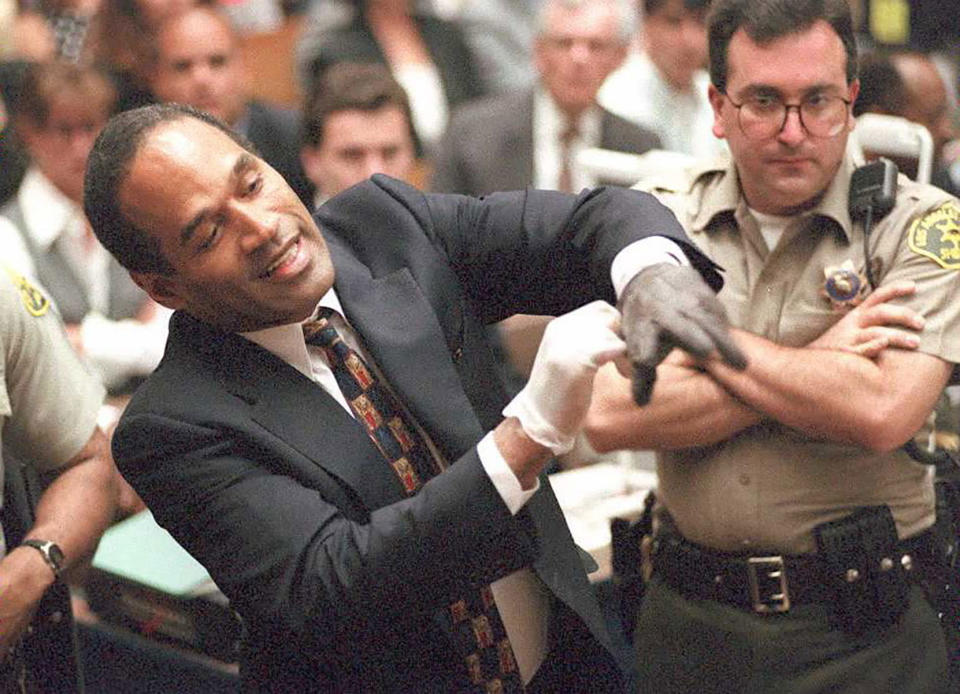
On June 15, 1995, Darden introduced a piece of evidence that would forever live in infamy. After investigators found a bloody glove on Simpson’s property — which they ultimately used to charge him with the murders — prosecutor Darden surprised co-counsel Clark by asking Simpson to try on the pair of gloves in the courtroom.
Essentially, Darden was seeking to prove that the gloves fit Simpson and, thus, belonged to him. When Simpson attempted to squeeze them on, however, he appeared to struggle. Darden attempted to blame Simpson’s arthritis, saying he hadn’t taken his medication which caused “swelling in the joints and inflammation in his hands.”
The next day, Cochran confirmed with the Los Angeles County Jail doctor that Simpson had actually taken his medication, contradicting Darden.
Ultimately, the gloves became a focal point of the entire trial, leading to Cochran’s notorious line: “If it doesn’t fit, you must acquit.”
The Closing Arguments
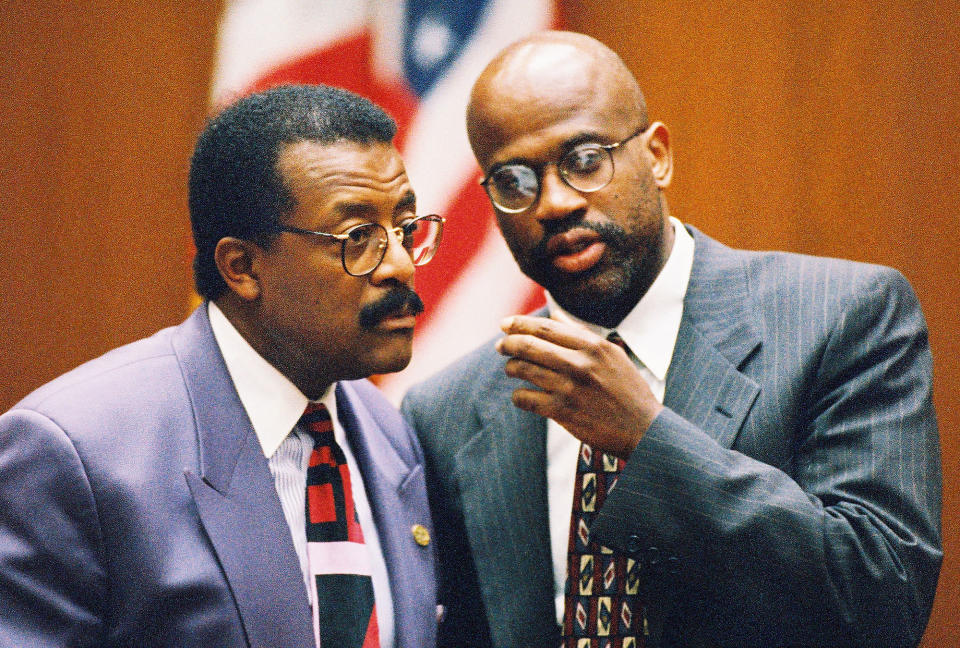
One year to the day after jury selection began, closing arguments in Simpson’s murder trial got underway on September 26, 1995. The prosecution spent a large amount of time focused on police, attempting to push back on the narrative that law enforcement was out to frame Simpson.
Cochran and his team notably objected 71 different times during Darden’s closing argument, which were overruled by Judge Lance Ito 69 times. In essence, the defense team attempted to stunt the impact of Darden’s words by bringing the proceedings to a halt over and over.
Celebrity Deaths of 2024: Stars We Lost This Year
When it was time for his own closing argument, Cochran spent the entire time blasting alleged misconduct by the LAPD. Cochran compared Fuhrman to Adolf Hitler, calling him "a genocidal racist, a perjurer, America's worst nightmare and the personification of evil.”
Cochran called on the jury to “send the police a message” with their verdict.
The Acquittal
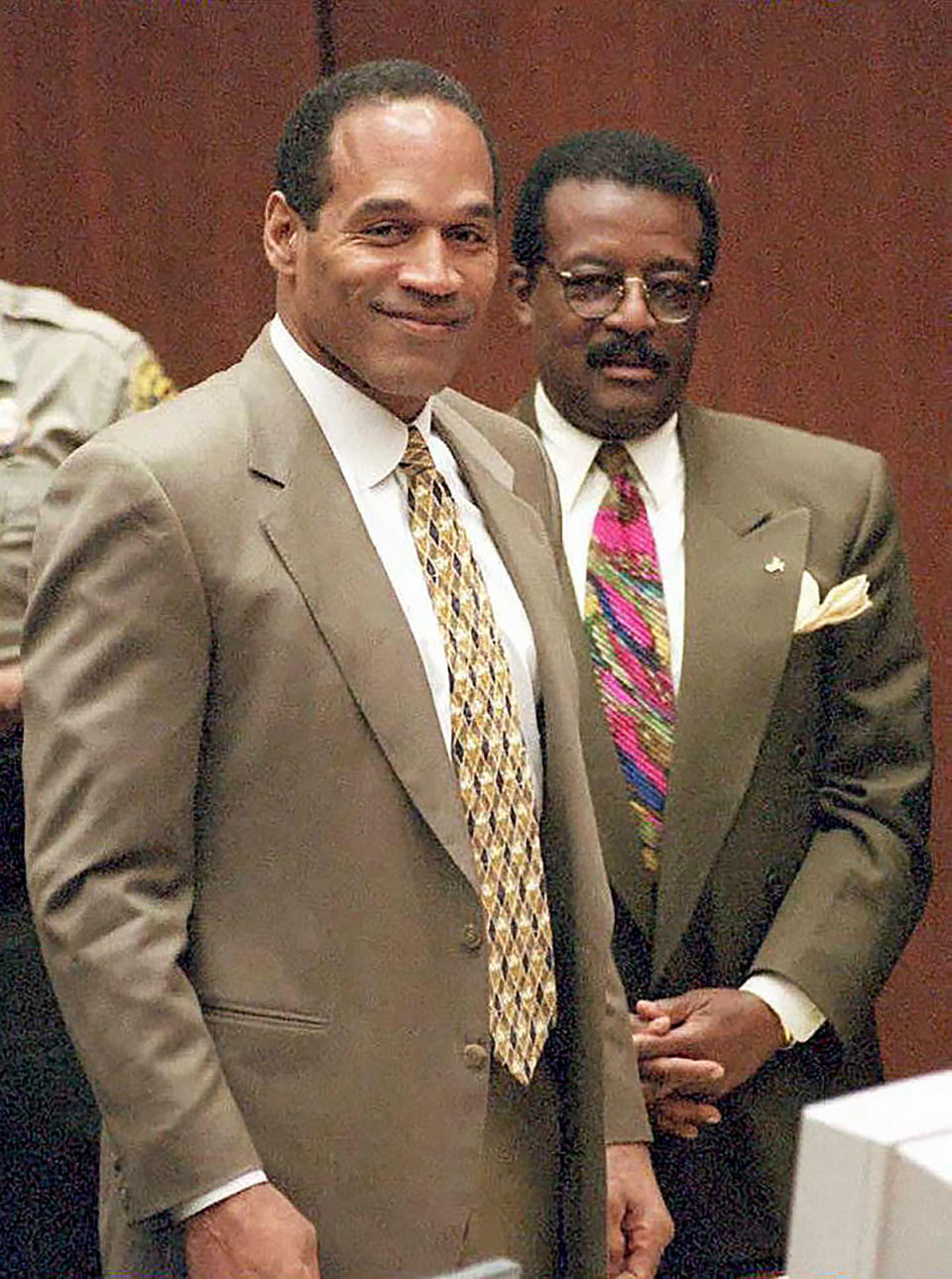
At 10:07 a.m. on Tuesday, October 3, 1995, Simpson was acquitted on both counts of murder. In one final surprising twist, the jury took only four hours to reach their verdict. It was reported that roughly 100 million people watched or listened to the verdict when it was read.
In 1996, the parents of Brown and Goldman filed a civil suit against Simpson, which ultimately found Simpson liable for the two deaths. The victims’ families were awarded $33.5 million in compensatory and punitive damages. Shortly after the civil trial, however, Simpson filed for bankruptcy.
In October 2008, the Goldman family said they had only received 1 percent of the money Simpson owed them.